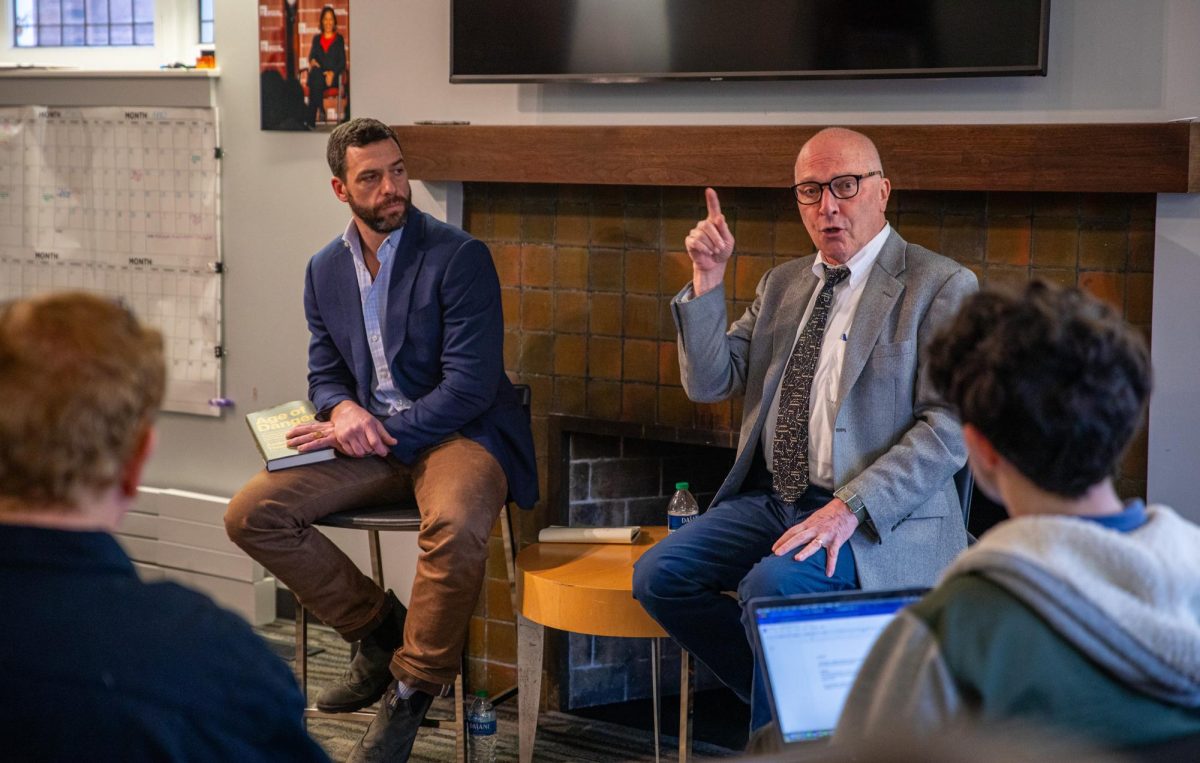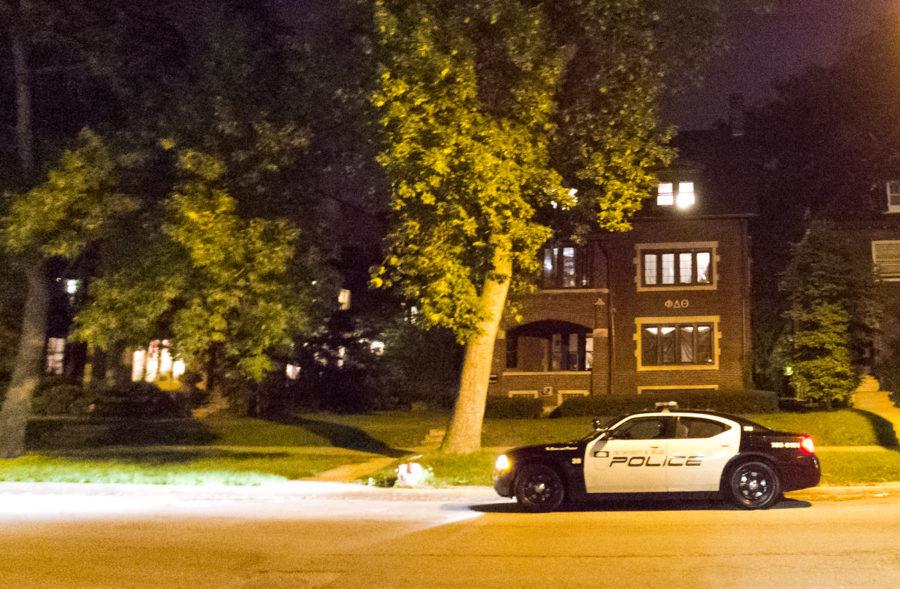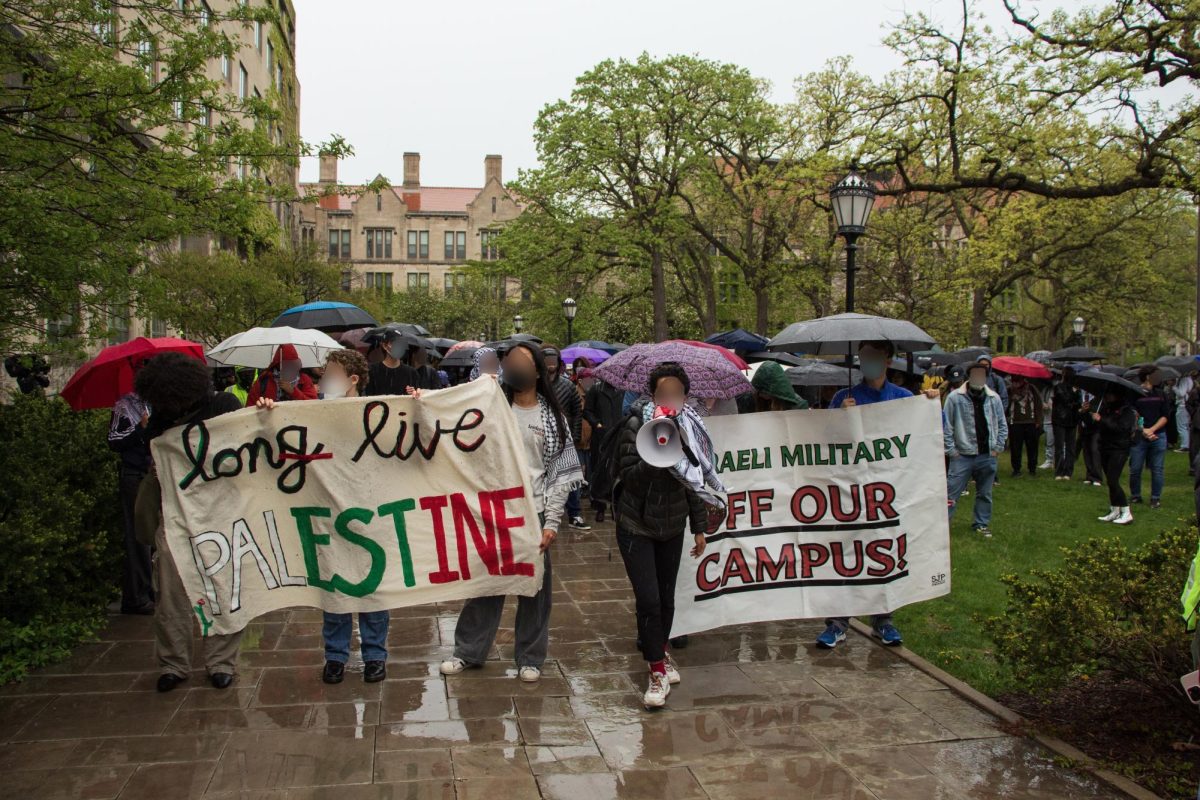The Wall Street Journal’s Ben Kesling interviewed long-time journalist Thom Shanker on his new book, Age of Danger: Keeping America Safe in an Era of New Superpowers, New Weapons, and New Threats on January 26. The event was part of the Institute of Politics’s (IOP) speaker series, which is designed to connect the UChicago community with reporters, activists, and public servants.
Shanker has served as a Pentagon reporter for over three decades at papers such as The New York Times and the Chicago Tribune. His work on these papers has led him to report on conflicts around the world such as the Yugoslav wars and the breakup of the USSR. Currently, he is the director of the George Washington University’s Project for Media and National Security. Kesling works as a national defense correspondent and previously served in the Marine Corps.
Shanker identified his frustration with the lack of popular engagement in concepts of national security as the key factor in his decision to write his new book. “We really believe national security is too important to be left to the chuckleheads in the Pentagon and no one else,” Shanker said. “The only answer is when you go to vote. Vote for people that you think are not going to succumb to hubris and mendacity in foreign policy.”
Shanker’s new book, written in collaboration with the RAND Corporation’s Andrew Hoehn and published in 2023, interviews military officials and analysts to explain key inefficiencies and external threats to the armed forces. The book also discusses the lessons that policymakers can draw from America’s role in conflicts such as the Vietnam War and the invasion of Afghanistan. Shanker hopes that his book tour will kickstart a nationwide conversation around the role of the military in the United States’s diplomatic posture.
The interview began with Kesling and Shanker discussing their views on necessary changes to the military. Shanker views the Department of Defense’s funding as a reflection of policymakers’ inefficient resource allocation. He pointed out, “How is it that we can spend $1.2 trillion on national security, and so often get it wrong, and feel undefended? We should spend what is required, but let’s spend it smart.”
When asked about the role of other organizations in the success of military objectives, Shanker also supported an increase in the power and budget of agencies such as the Department of State. He viewed America’s quick response to military action in global conflicts as counterproductive to their national security interests, raising the War in Afghanistan as an example.
“If all you have is a hammer, you will see every problem as a nail,” Shanker said. “That’s what the Pentagon does. We want to apply a broader definition of national security to concepts that cannot be solved with bullets and bombs… It’s up to leadership to widen the aperture. If we want women to go to school and free elections to be enforced, we have to wonder whether people with guns and bombs can do that best.”
Kesling finished the conversation by questioning Shanker about his views on the future risks to national security in the next decade. Drawing from his book, they discussed the importance of preparing for potential aggression from actors like Russia and China, as well as internal issues like global pandemics or political polarization. Shanker identified climate change as one of the largest game-changing threats to the future of domestic national defense. He forecasted a change in the role of the National Guard due to the increasing frequency of national disasters which would draw away resources from other conflicts. “The National Guard is going to become a domestic 911 force,” he said. “A million Americans will never be able to deploy to help our national security interests because they are going to be busy at home.”
Engaging with students post-event, Shanker emphasized the role that activism on college campuses could play in impacting military policy. “The future deserves a seat at the table,” Shanker said. “Leaders often focus on winning the evening news cycle, but it’s crucial to consider not just today’s problems. You are the next generation of national security leaders. Use college as a time to get politically active and learn about your world.”










